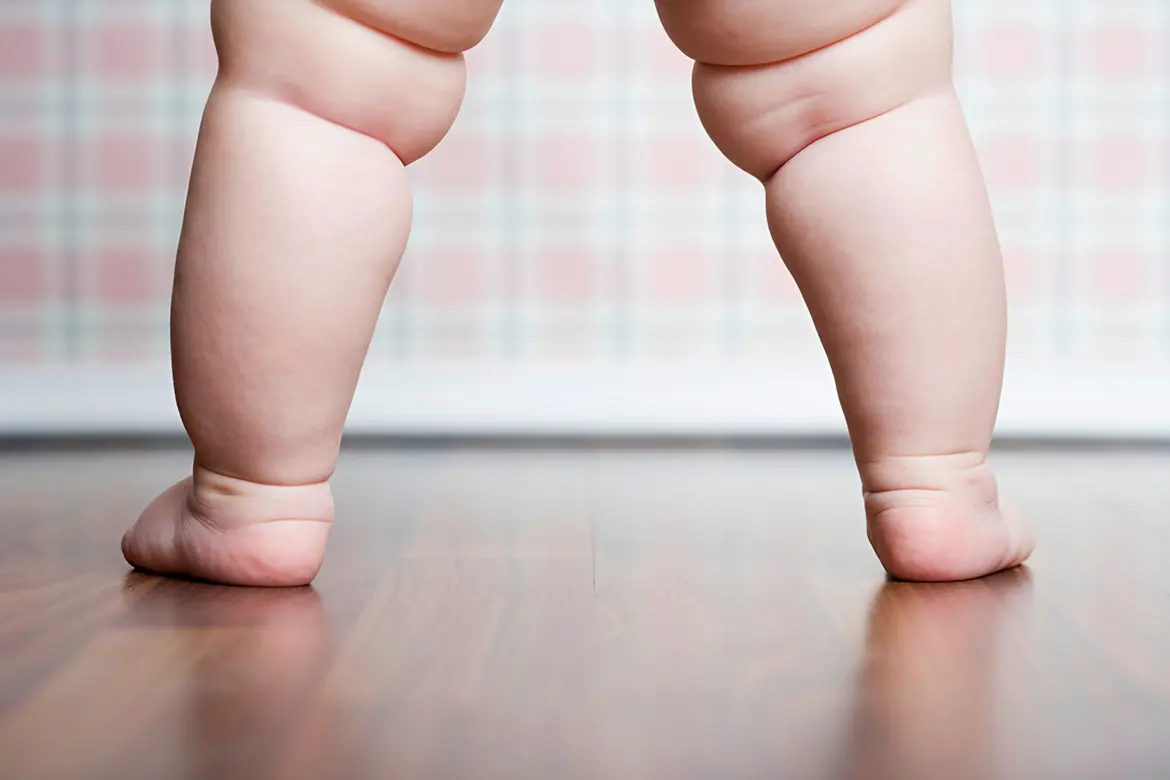The sight of a chubby baby often warms our hearts, signifying a stage of healthy development. However, parents should also take note that excessive baby fat can pose risks to a child's long-term health, potentially leading to childhood obesity.
What is childhood obesity, and how can I tell if my child is having it?
Childhood obesity is characterised by the accumulation of excess body fat, a condition that can have lasting health implications. Monitoring your child's growth is crucial, utilising growth charts provided by healthcare professionals to track BMI-for-age percentile. A percentile at or above the 85th suggests overweight, while above the 95th indicates obesity. Your child’s doctor will measure BMI, or Body Mass Index, starting from the age of 2.
The consequences of childhood obesity are significant. It increases the risk of type 2 diabetes, cardiovascular issues, joint problems, psychological impacts such as low self-esteem and depression, and respiratory conditions like asthma.
In conclusion, vigilance in monitoring and addressing childhood obesity is essential for ensuring the long-term health and well-being of children. By understanding the risks and taking proactive steps, we can help our children lead healthier lives.
What causes obesity in children?
Childhood obesity is a multifaceted challenge arising from a combination of genetic, environmental, and behavioural factors. Even parents who are not overweight may have children who become overweight. A child's weight development is influenced by a synergy of genetic predispositions, environmental factors, and lifestyle choices.
While genetics can influence an individual's tendency to gain or lose weight, environmental factors such as unhealthy eating habits and inadequate physical activity can also contribute significantly to excess weight. Considerations such as food accessibility and family lifestyle play a role in the development of childhood obesity.
Recognising and addressing these numerous factors is crucial in effectively combating childhood obesity and safeguarding the health and well-being of children.
How can I help my overweight child to lose weight?
As parents, it is crucial to create a supportive environment that encourages a healthy lifestyle for our children. Here are 9 ways you can help an overweight child lose weight:
1. Consult with a healthcare professional
Before implementing any weight loss plan, consult with a paediatrician or a registered dietitian. They can provide personalised guidance based on the child's age, growth, and overall health. You should not let your child follow a fad or calorie-restricted diet without any professional guidance. Such diets may be nutritionally imbalanced, posing a risk of nutrient insufficiency. Besides, they can slow down a child’s metabolism, making weight loss more difficult. Weight loss is necessary but not at the expense of nutritional inadequacy.
2. Set realistic goals and make gradual changes – Start small!
Establish realistic and achievable goals for your child's weight management.
Make gradual changes to diet and activity levels rather than implementing drastic measures. For example, you can replace all sugary drinks, such as juice or soda, with low-fat milk or unsweetened soy milk for a week. Small, incremental adjustments are more likely to lead to sustained success in the long term. Small, incremental adjustments are more likely to result in sustained success over the long term.
3. Foster family involvement and model healthy behaviours
Create a supportive environment by involving the entire family in adopting healthier habits. This inclusive approach makes the process enjoyable for the child and prevents them from feeling singled out. Lead by example in showcasing healthy behaviours through the adoption of nutritious eating habits and an active lifestyle. This dual strategy serves as a positive influence for your child.
4. Control portion sizes - Pay attention to your body's signals
Encourage your child to pay attention to their body's signals of hunger and fullness during meals. Before eating, ask them to notice if their stomach is rumbling, indicating hunger. As they eat, encourage them to eat slowly and mindfully, pausing occasionally to check in with their body to see if they're still hungry. Teach them to stop eating when they feel comfortably satisfied, even if there's food left on their plate. By practising this awareness regularly, children can develop intuitive eating habits, fostering a healthier relationship with food.
5. Ensure your child doesn't miss breakfast
Make sure your child doesn’t skip breakfast, as it is the initial meal providing them with energy and essential nutrients for body functions until their next meal in the afternoon. However, data indicates that approximately 8 - 12% of all school-aged children skip breakfast. Skipping meals not only results in nutritional deficiencies but also hampers metabolism.
6. Make nutritious snacks accessible
Make nutritious snacks and foods more readily available, and remove junk and unhealthy options from your child’s easy access. This practice reduces the likelihood of opting for unhealthy foods when hungry and gradually instills a habit of making healthier dietary choices.
7. Never use weight loss supplements or pills for children
Avoid employing weight loss supplements or pills for children, even if their weight loss progress is gradual or they are not experiencing weight reduction. The safety and effectiveness of such products for children remain uncertain, and they may pose potential long-term adverse effects that could impede a child's overall development.
8. Promote positive body image
Encourage a positive body image and self-esteem in your child. Focus on promoting a healthy lifestyle rather than solely on weight loss.
9. Celebrate achievements – no matter how little!
Celebrate your child's achievements, whether they are related to adopting healthier habits or reaching specific milestones. Positive reinforcement can motivate and boost self-confidence.
Dangers of rapid weight loss for children
While weight loss is a commendable goal for children managing obesity, the approach needs careful consideration. Rapid weight loss, driven by a desire to cut calories, can lead to unhealthy eating habits, depriving the body of essential nutrients and causing issues such as fatigue, weakened immunity, and reduced bone density. The body may perceive rapid weight loss as 'starvation,' leading to a slowed metabolism and a higher likelihood of gaining weight swiftly afterward. Moreover, it may result in the loss of muscle mass, posing health risks.
Girls may also face challenges related to their menstrual health. To mitigate these risks, it is advisable to pursue gradual weight loss through a balanced diet and regular physical activity.
If your child struggles to lose weight despite efforts, you might want to first rule out all underlying health concerns such as hypothyroidism or Cushing’s syndrome, where weight loss can be challenging due to a slow metabolism.
If you have concerns about your child's weight, it is recommended to consult with their paediatrician before embarking on any weight loss journey.















